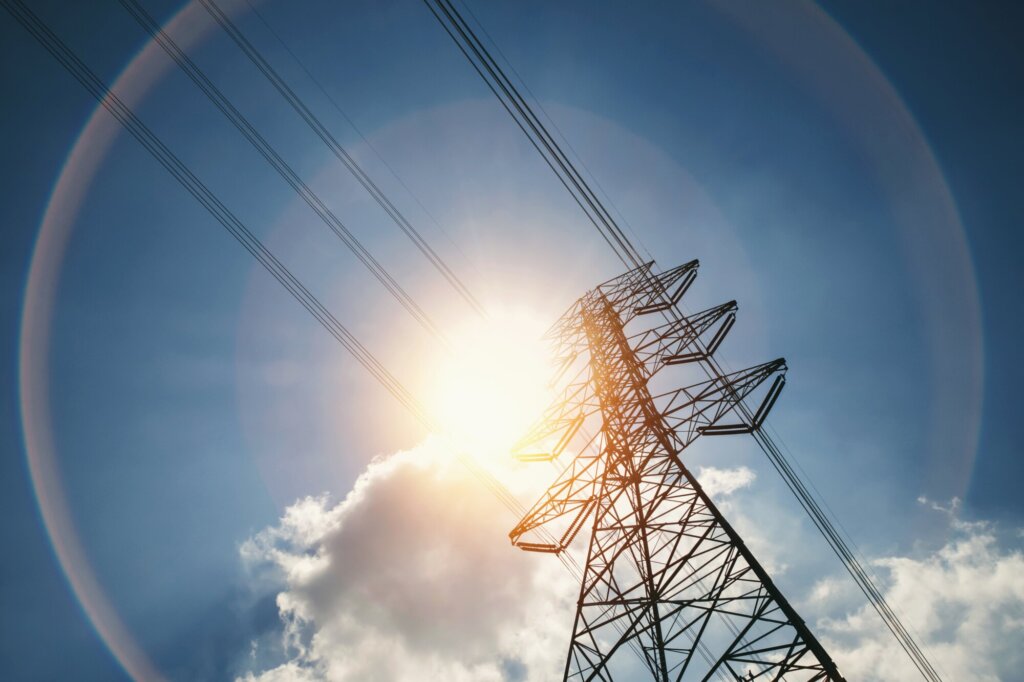Canada Electricity Advisory Council Delivers Final Report on Achieving Canada’s Clean Electricity Goals

The Canada Electricity Advisory Council (CEAC), chaired by Dunsky President Philippe Dunsky, completed its 12-month mandate to examine ways in which the federal government can best support the expansion of clean electricity in Canada. Clean electricity – both to decarbonize existing supplies and to electrify many end uses across heating, industry and transportation – is central to every possible pathway to Canada’s net-zero target.
The independent Council, which was made up of 19 electricity sector experts representing every region of the country, achieved consensus on 28 recommendations for its final report, entitled Powering Canada: A Blueprint for Success.
Meeting the Challenge of a Generation
For Canada to achieve net-zero emissions, we must meet a generational challenge to decarbonize existing grids while simultaneously greatly expanding clean electricity production to meet rising demand from the electrification of other sectors. The Council determined that there can be a viable route to achieving net-zero that respects regional disparities, safeguards reliability, maintains affordability and cost-competitiveness, and respects (and includes) Indigenous communities. But to achieve this goal, Canada must take thoughtful, urgent action.
Council Recommendations
The Council’s recommendations to the federal government follow four critical themes, all of which are aimed at improving the electricity transition’s speed, reliability, affordability and Indigenous inclusion. They are:
- ALIGN on goals: the Council determined that progress can be hindered by overlapping or conflicting policies among different levels of government, utilities and regulators. Aligning mandates and objectives among utilities, regulators, governments and other agencies would improve clarity and consistency in Canada’s energy and policy landscape, as would measures such as greater policy clarity and flexibility. Read ALIGN on goals
- ENABLE the build: the Council concluded that systemic reform of clean electricity approval processes is needed to accelerate the transition. While many processes fall within provincial and territorial jurisdiction, the federal government can both lead by example and play an important role in the reconfiguration of its own processes to enable timely build-out of the country’s electricity systems. Read ENABLE the build
- SUPPORT the transition: the Council concluded that the energy transition will save the average Canadian money, but that costs may be unevenly distributed, particularly for those in fossil fuel-reliant provinces and territories, lower-income households, and Indigenous and remote communities. The Council recommended a series of measures including optimizing tax credits, a more collaborative framework for inter-regional grid transmission projects and other measures including support for low-income Canadians. Read SUPPORT the transition
- SAVE energy to lighten the load: the Council recommended a number of ways the government can promote and ensure the accelerated use of energy efficiency and demand-side management to reduce electricity demand and minimize investment needs as we move to clean sources of energy. This includes playing a leadership role and creating an energy efficiency accountability framework. Read SAVE energy to lighten the load
Underlying these recommendations, the Council called for pragmatism and collaboration as linchpins to ensure success. The Council recognizes the increasingly critical role that clean electricity is poised to play in Canadian society and in its economy. Succeeding in this transition will allow Canada to emerge on solid footing, having reinforced its position in the post-transition global economy.
We invite you to read the detailed list of recommendations and final report using the link below.
Related Projects
- Read more about Unlocking Vehicle-Grid Integration in Canada
Unlocking Vehicle-Grid Integration in Canada
September 25, 2025
A new report from Dunsky prepared for CSA Group provides a comprehensive look at the Vehicle-Grid Integration (VGI) landscape in…

- Read more about Toronto Hydro and Dunsky Help Enable Customer Clean Energy Projects Through Cleantech Services Network
Toronto Hydro and Dunsky Help Enable Customer Clean Energy Projects Through Cleantech Services Network
July 3, 2025
Barriers to undertaking clean energy projects are not just financial. A significant barrier for residential and commercial building owners to…

- Read more about Utility Projects on the Go
Utility Projects on the Go
October 18, 2024
Our team is currently supporting utilities on both coasts (and others in between) with a variety of strategic initiatives. Here…
